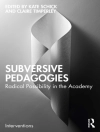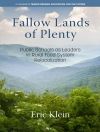‘Regimes of Happiness’ is a comparative and historical analysis of how human societies have articulated and enacted distinctive notions of human fulfillment, determining divergent moral, ethical and religious traditions and incommensurate and conflicting understanding of the meaning of the ‘good life’.
Presented in two parts, ‘Regimes of Happiness’ provides a historical view of the way in which Western societies, the descendants of the Latin Roman Empire, created languages and institutions that established specific and occasionally antithetical conceptions of a fulfilled human life or 'happiness’ in the first part. The second part explores how non-Western societies and non-Christian religions have conceived and established their own ideals of human perfection. ‘Regimes of Happiness’ is a critical reflection on modern notions of happiness which are typically focused on individual feelings of pleasure.
Spis treści
Introduction: Reflections on Regimes of Happiness, Bryan S. Turner and Yuri Contreras-Véjar; Happiness in the West; A Fragment of Bliss: Augustinian Beatitudo and the Ideal of Atonement, Yuri Contreras-Véjar; Arts of Happiness and Love: Translating Aristotle in the Later Middle Ages, Jessica Rosenfeld; Spiritual Transcendence as the Path to Happiness in a Selection of Old French Texts, Stephanie Grace Petinos; St. Francis and Machiavelli on Happiness and Joy, William J. Connell; The Concept of Happiness Prevents Facile Definitions in the Scottish Enlightenment, Megan Hills; A Path to Eternal Happiness: Convent Life in the United States in the Nineteenth Century, Bernadette Mc Cauley; “Be Joyful Always!” Twenty-First-Century Evangelical Conceptions of Happiness and Trumpist Politics, Joanna Tice-Jen; The Erasmus Program: The Promise of European Happiness, Davide Giuseppe Colasanto; Innovations in the Psychological Study of Happiness: From Mirror Neurons to Mobile Technology, Samantha Birk, Samantha Denefrio and Tracy A. Dennis-Tiwary; Comparative Perspectives; And You Should Be Nothing but Happy: Judaism and the Dual Approach to Joy, Marc Katz; Happiness in Medieval Islamicate Literature: Conceptual and Practical Problems, Anna Akasoy; From Liberation to Happiness: The Making of Modern, Middle-Class Yoga, Shehzad Nadeem; The Pursuit of Happiness in Vietnam, Nguyễn Tuấn Anh and Oscar Salemink; Indigenous and Western Views of Happiness: An Essay on the Politics of Contentment, Colin Samson; A Nineteenth-Century Turning Point: Nietzsche, Weber, Freud and Mill, Bryan S. Turner; Index.
O autorze
Yuri Contreras-Vejar is professor of sociology at Universidad Diego Portales, Chile. He is also a member of the Committee for the Study of Religion at the Graduate Center, CUNY, USA.
Joanna Tice Jen is a member of the political science faculty at Las Positas College, USA. She received her Ph D in political science from the Graduate Center, CUNY, USA, in 2017.
Bryan S. Turner is professor of sociology at the Australian Catholic University, emeritus professor at the Graduate Center, CUNY, USA, and honorary professor, Social Science Faculty, Potsdam University, Germany. He won the Max Planck Award in 2015.












